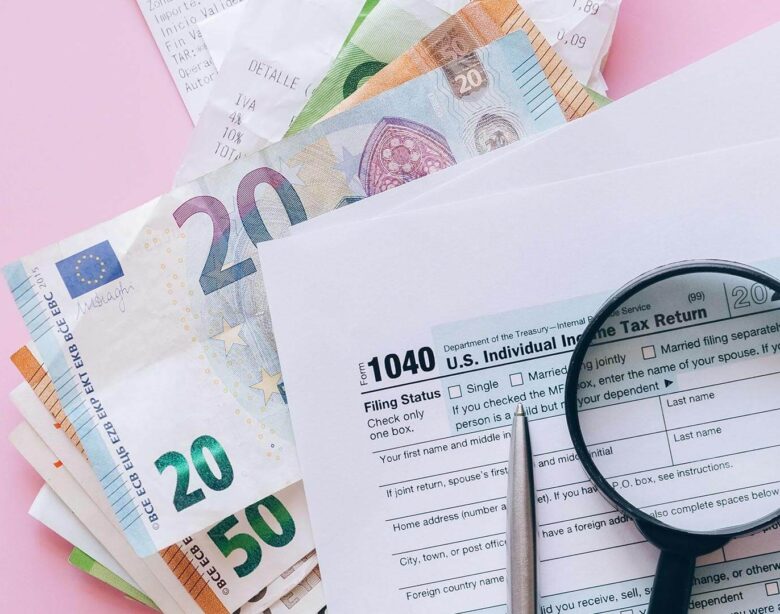What Is Personal Finance?
Personal finance is the managing of your money including saving and investing. It is all about making sure that you have a financial plan that encompasses your desires and financial goals. Making sure that you meet those goals within your financial constraints. This plan ensures that your expenses and living requirements are taken care of. While also having enough to save and do a little investing. To be able to achieve this you need to have a few strategies in place. The first of which should be to learn more about your finances, which is termed as financial literacy.
What is Financial Literacy?
As much as many people transact with money every day, many people are not financially literate. And since this is not taught as a common subject in school, you can find that you know so much about other things but very little about your finances. Financial literacy is the gaining of knowledge about how your finances work. What it means for you to take a loan and the interest compounded on it. What is means to have a good credit score.
Having all the information at your fingertips will save you a lot of heartaches. Because you will not be a victim of financial fraud. And also you will be able to make smart financial decisions. Since you will not just spend money or take a loan without knowing all the details. Most people find themselves in a fix because they did not read the fine print in a financial document that they signed. Or they find themselves spending money that they don’t have hence landing themselves into a mountain of debt.
Categories of Personal Finance
1. Income
This is revenue received for the provision of a service or goods, usually on a regular period from work or investments made. For most people, their income comes from a salary. For some, it can be from different avenues, a salary and several side hustles and investments done that give back a return.
It is best to understand your income vs other things. Because this is the only avenue where you have money coming in, the rest is all about money going out. It is best that your income be more than the avenues taking your money out so that you do not fall into debt.
Related: 11 Side Hustles That Let You Work From Home
2. Debt
This is the money accrued that was taken as a supplement to your income since the money coming in did not suffice to fit the needs of the money going out. Debt is not necessarily a bad thing. But before you take that debt you need to be sure that you are taking it for the right reasons and that you have a way of returning the money.
This eventually turns into an avenue of taking money out since the money given to you was not for free. So before you add to the avenues of money going out, you need to make sure that your income stream will not suffer. If it does you will be forced to take more debt and you will keep going round in circles always in debt.
Related: How To Get Out Of Debt And Save More
3. Savings
This is money put aside for the purpose of something. It could be for the purpose of an emergency fund or for the purpose of investment. Or maybe you just want to do something huge but your salary cannot accommodate you doing it all at once. So you need to set some money aside until it grows to the amount you need.
Either way, saving up is an integral part of your personal finance as it enables you. It is able to give you some sort of power as you are not powerless if something suddenly happens and you need money. Also, it gives you discipline over your finances, you will not just spend on a whim. You will make calculated spends and budget easily.
Related: How To Start Saving: Simple Steps To Get You Started
Related: Savings Checklist
4. Budgeting & Spending
Budgeting is the creation of a plan, preferably a written one, as to the money that is coming in and how you plan on spending it and what remains for you to be able to save and invest. This will include rent, food expenses, transportation, utility bills, clothing and basically all you need to make your living conditions comfortable.
A budget will help you have a visual picture as to whether you have enough money to do the things you want to do. Or you need to cut back on a few things or be frugal with some things or simplify your life a little. Having a budget and implementing one though are two different things. You need to have a lot of discipline to get it right but consistency is key even if you fall off the wagon, get back on it and eventually one day you shall implement it fully.
Related: Monthly Budget
5. Investments
This is basically the acquiring of an asset or putting in money into a venture in the hope of a future return in profit. This could be in the form of reselling the asset at a higher price. Or getting an amount of money after a particular period from the venture or asset that was acquired. Investments usually take time to produce a return. So it should not be done when you are at a crunch for money.
It should be done using money that will not affect your quality of life as you know it. Preferably using money that you have saved up specifically for that reason. The good thing about an investment is that if done correctly it can set you up for life. Be careful though not all investments are worthy investments, so you should really take your time before investing into one. Take your time, do your research then finally make the decision.
Related: 19 Practical Investments That Will Make You Money Even As You Sleep
6. Taxes
This is a compulsory contribution to the government of your country for the main purpose of its revenue. Most people have no idea how to file their taxes. Taxes should be filed properly to avoid penalties that could land you in financial trouble. In addition to the filing of taxes, you need to have information on the type of taxes that you pay for as an individual. For example, every time you buy an item, you pay the tax that has been levied on that item.
One should also know that in some instances there is a refund on tax. Whereby you may have paid in excess of your taxes in the form of policies not paid out. And you are entitled to the refund of your money from the agency that collects Tax for the government.
7. Insurance
This is a form of protection from financial losses, mostly in the instance of an unforeseen event or an uncertain loss. For example the loss of stock in a business, or the burning down of your home, or medical insurance in the chance that you become gravely ill. Insurance is important since the policies are paid for slowly and small amounts at a time and the payout is big in the instance that you need it.
Insurance is important to your personal finance as it cushions you against harsh financial burdens. It is important to have insurance for your medical care, house and car. In some instance, people take out insurance on their life. In the event that they do die, their families are well taken care of.
Having information on your personal finance is a great weapon. You will be more in control of your finances and you cannot be duped easily. I hope this list is able to help you make better financial decisions, and you are now equipped with more knowledge about your personal finance. All the best dearies.




[…] 7 Categories Of Your Personal Finance […]